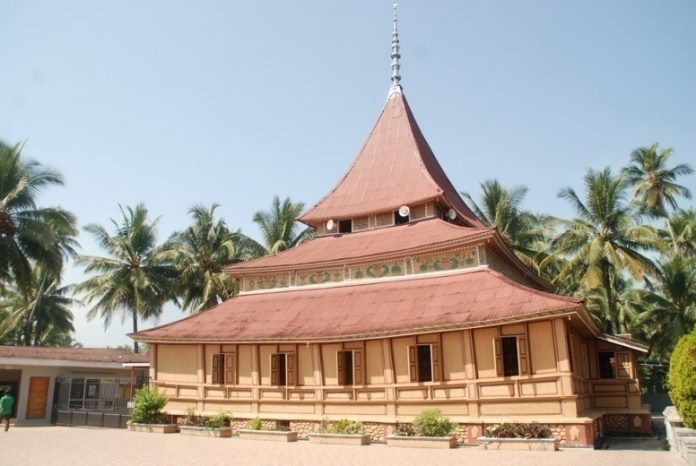Payakumbuh (Indonesia)
Enlarge text Shrink text- Sumatera Barat, Indo. Unit Perencanaan. Rencana tata kota ... 1979- (subj.)v. 1, t.p. (Payakumbuh)
- BGN tel. call 3/27/80(Payakumbuh, ppl [later name], 0p0s14ʹS 100p0s 38ʹE; variant: Pajakumbuh [earlier name])
Payakumbuh (Minangkabau: Payokumbuah, Jawi: ڤايوكومبواه) is the second largest city in West Sumatra province, Indonesia, with a population of 116,825 at the 2010 Census and 139,576 at the 2020 Census; the official estimate as at mid 2023 was 144,830 - comprising 72,840 males and 71,990 females. It covers an area of 80.42 km² and is in the Minangkabau Highlands, 120 km by road from the West Sumatran capital city of Padang and 180 km from the Riau capital city of Pekanbaru. The whole area is surrounded on all sides by (but administratively independent from) the Lima Puluh Kota Regency, making it an enclave. It is located near the volcanoes of Mount Merapi, Mount Sago, and Bukit Barisan. Payakumbuh means "grassy swamp" in the Minangkabau language., suggesting that the area was originally swampy. In 2011, Payakumbuh had the highest economic growth of any city in West Sumatra. Innovations in sanitation, waste management, healthy traditional markets, street vendors coaching, and urban drainage resulted in this city being awarded the "Urban Innovation Management" in 2012. In 2013, Payakumbuh received the "Adipura" ('cleanest city') award in the category of small city for the seventh time. Payakumbuh is known for flying duck races, foods like batiah (small sweet rice cookies), gelamai (a sweet coconut palm sugared snack) and rendang. Payakumbuh produces a wide range of agriculture products including rice, milk, cattle and palm sugar. Payakumbuh and its surrounding villages, namely Mungka, Simalanggang and Batuhampar are the origin of the Negeri Sembilan people of Malaysia.
Read more on Wikipedia >
 Place
Place









